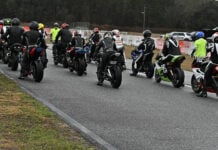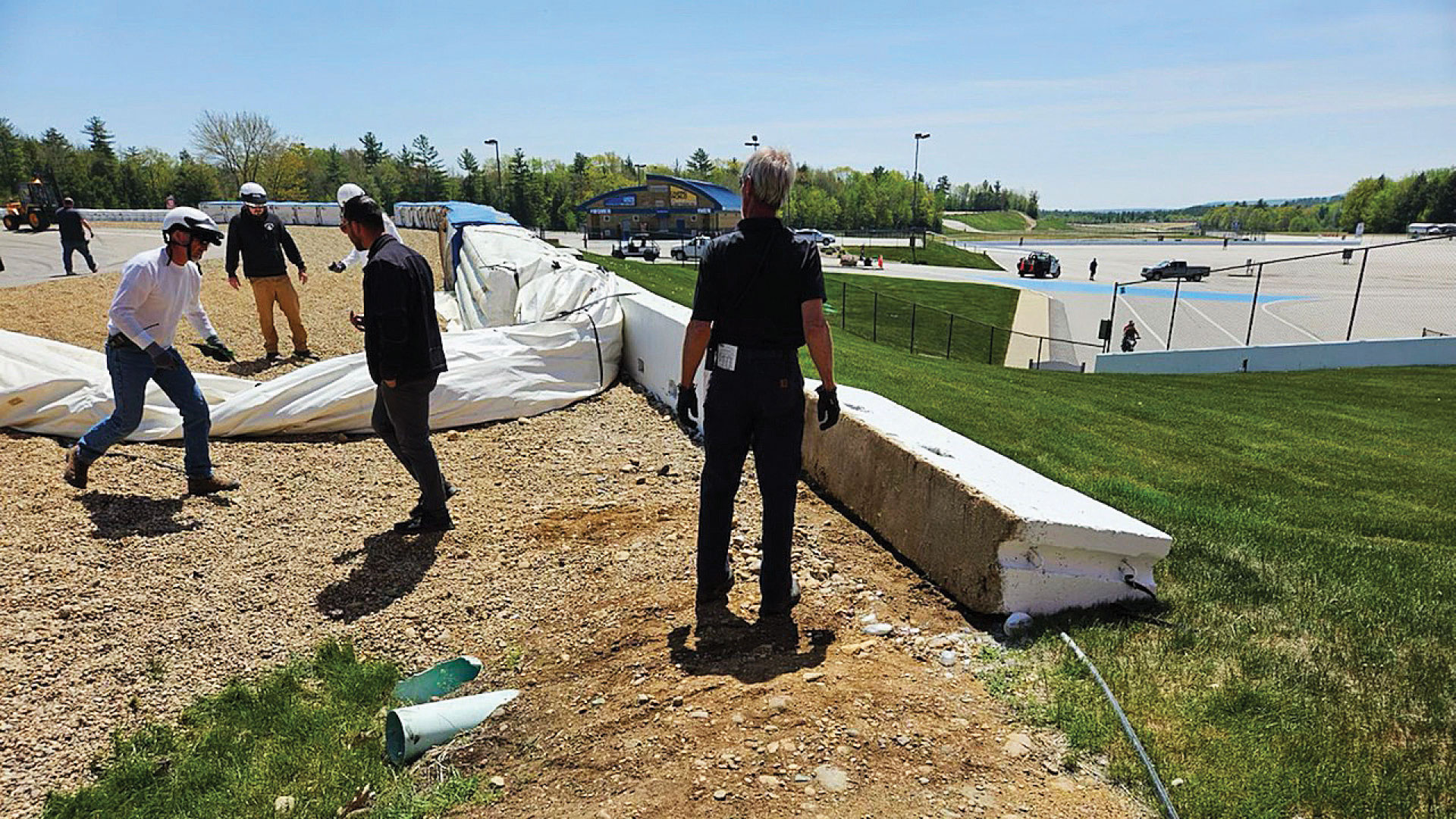Saved! Mark Fitzgerald
By Michael Gougis
“I’m probably alive because of you guys.”
That’s how Mark Fitzgerald opened the conversation when he called me back. He may not be exaggerating.
Fitzgerald, 44, of New Boston, New Hampshire, was racing at New Hampshire Motor Speedway in May when he crashed his Kawasaki ZX-10R into a concrete K-rail so hard that he knocked it over. Just to illustrate how big that hit was, a 10-foot section of K-rail weighs approximately two tons. It’s the type of concrete barrier that is craned into position on street car racing circuits like at the Acura Grand Prix of Long Beach to help keep cars from flying into the stands and the crowd.
What saved Fitzgerald was the fact that in front of that section of K-rail was an inflatable Alpina soft barrier, purchased by the Roadracing World Action Fund with donations from NEMRR, and deployed at New Hampshire Motor Speedway by NEMRR. (Alpina and Airfence are two separate companies that make similar inflatable soft barriers designed to absorb energy and homologated by the FIM.)
“The last thing I remember was being on the brakes and the bike wasn’t slowing down. The front wheel was still in the air when I got into the braking zone. I had the presence of mind to get off the brakes, but by that point I was well into the dirt. I went into the Airfence at well over 100 mph,” he said.
Fitzgerald’s Alpinestars airbag suit deployed and his Arai helmet hit the barrier so hard that the shell cracked as it absorbed energy, as designed. It was a huge, huge hit.
And 25 minutes later, Fitzgerald was conscious and arguing with the ambulance attendants who wanted to cut him out of his suit.
“I was in the ambulance and they were getting ready to bring me to Concord Hospital as a Class Two trauma. They wanted to cut off my boots and suit and I was pretty upset by that. Against their advice, I stood up in the ambulance and took my boots and my suit off,” he says.
His injuries included third-degree burns on his back and left ankle where the Kawasaki landed on top of him. A broken vertebra, two broken bones in his right ankle, 17 broken ribs, a Class Two (moderate) concussion, and ruptured blood vessels in his left eye.
Before the racing for the day was completed, Fitzgerald was back at the track, watching his friends race.
“I’m not sure I’d be here if it wasn’t for you guys and your Airfence. I haven’t ever had an accident like this before. It just happened so fast. I’m just fortunate that I’m here to talk about it. The fact that I was able to go to work at 6:30 on Monday morning is a testament to the engineering of the Airfence. I’m incredibly fortunate and thankful.”
About the Roadracing World Action Fund
The Roadracing World Action Fund – a 501 (c) (3) non-profit organization – began back in 2001 as a grassroots movement to improve racetrack safety for motorcycle racers and riders. At the time, haybales or stacks of tires were sometimes placed in front of concrete walls for rider protection in case of a crash. A far better solution for rider safety existed – FIM-homologated inflatable soft barriers which absorb the energy of a crash. Soft barriers–made by Airfence or Alpina and purchased the Roadracing World Action Fund using donations and fund raisers–help improve the chances that racers can walk away from a crash which in the past might have caused catastrophic injury, or even death.
The Roadracing World Action Fund gained the support of the motorcycle community, as racers, riders, family and friends, motorcycle businesses, racing organizations and racetracks helped make use of soft barriers the standard, rather than the exception, for motorcycle races and track days across the nation. Now, from Laguna Seca to Daytona, Motorsports Ranch to VIR, Road Atlanta to Road America, and many more, soft barriers are deployed more frequently and in greater quantities than ever before, as the Roadracing World Action Fund continues its mission of helping prevent racetrack injuries through motorcycle road racing safety education, and by organizing donations and funding to purchase and deploy FIM-homologated soft barriers.






